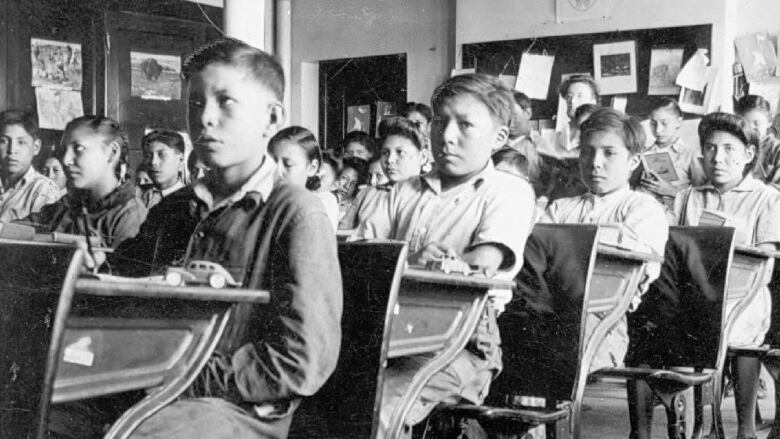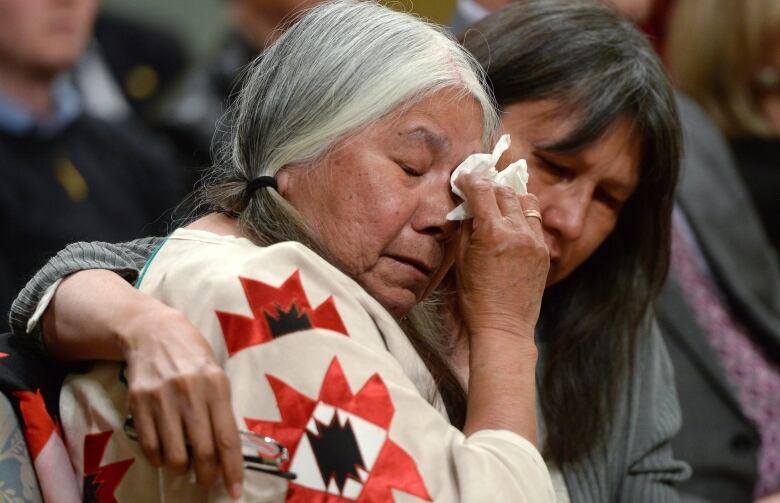Destroying personal accounts of residential schools would just compound the tragedy
Canadians need to hear that history in the words of the survivors themselves

History books relay facts. Personal accounts tell stories.
So it was with a mix of sadness and disappointment that I read the Supreme Court of Canada's ruling that thousands of records of horrific abuse at residential schools are to be destroyed.
The documents were collected from the testimony of over 38,000 survivors who testified in private hearings for compensation for the abuse they suffered. Many more, I'm sure, never had that chance.
Canada's government sought to preserve those records, but in a unanimous decision Friday, the court shot it down, noting that "the independent assessment process was intended to be a confidential process, and both claimants and alleged perpetrators had relied on that assurance of confidentiality in deciding to participate."
A child of survivors
I am the child of residential school survivors. Also, at 42 years old, I'm one of few among my siblings who didn't attend residential school or "day schools." Though my mother spoke more and more about her experience as a student in Saskatchewan as she aged, my father never uttered a word at least not to me. I have heard from many more like myself, who were spared from the schools, who share that same experience of silence.
So simply put, those recordsas horrific as I am sure they are are proof of what happened in the schools. Contained in them are specific details of one of the darkest chapters in this country's history: the loss of language, culture and family. The physical, emotional abuse and sometimes repeated sexual assaults of tens of thousands of children.
Remember that. They were children.
- Indigenous residential school records can be destroyed, Supreme Court rules
-
Ottawa announces $800Msettlement with Indigenous survivors of Sixties Scoop
The effects of what happened in those schools still reverberate in communities today, yet physical proof of the schools is rare. Few of the actual schools still stand today. I have yet to see a uniform that was worn by the survivors in any museum. At a recent visit to the National Centre for Truth and Reconciliation in Winnipeg, I saw a wool blanket that was given to a student in a Manitoba school, their name still etched on it. It was haunting and painful to seebut something that more people need to witness for themselves.
So it is with these records. It is a painful, agonizing history but one that deserves to be preserved so that future generations both Indigenous and non-Indigenous can learn what so many went through in the name of progress and assimilation.
Yes, we have the testimony from the Truth and Reconciliation Commission. Yes, books have been written about residential schools. There are documentaries and films. But can there ever be too much evidence, too much proof? Canadians and even Indigenous people need to know the sheer breadth of the schools the last of which closed in just 1996. It would be best if they heard that history in the words of the survivors themselves.
I can only imagine the horrors those children faced, and so it is understandable that those who shared their experiences as adults would like to see them destroyed. They are, I'm certain, the annals of trauma.

I also understand the need for confidentiality, and that the survivors who testified did so under the expectation that their words would be kept private. But could we not keep the stories with the names and other identifying details redacted? True, breaching that agreement could cause even more trauma, but now it's up to Canada to step up and ensure the survivors have all of the help they need to heal from the wounds of the schools, whatever the cost.
There's always a chance this decision could somehow be overturned. If it is, it will be a wise decision. For now, these documents are to be kept for 15 years, during which time survivors can choose to have their records preserved. Failing that, the documents will be destroyed forever.
I hope many of the survivors will opt to see them kept. But since we lose so many of those survivors each year, it seems unlikely. As difficult as it is for me to say this, it is an added tragedy that with them will go a history that all in this country deserve to know. No matter how painful.
This column is part ofCBC'sOpinion section.For more information about this section, please read thiseditor'sblogandourFAQ.












_(720p).jpg)


 OFFICIAL HD MUSIC VIDEO.jpg)
.jpg)



























































































